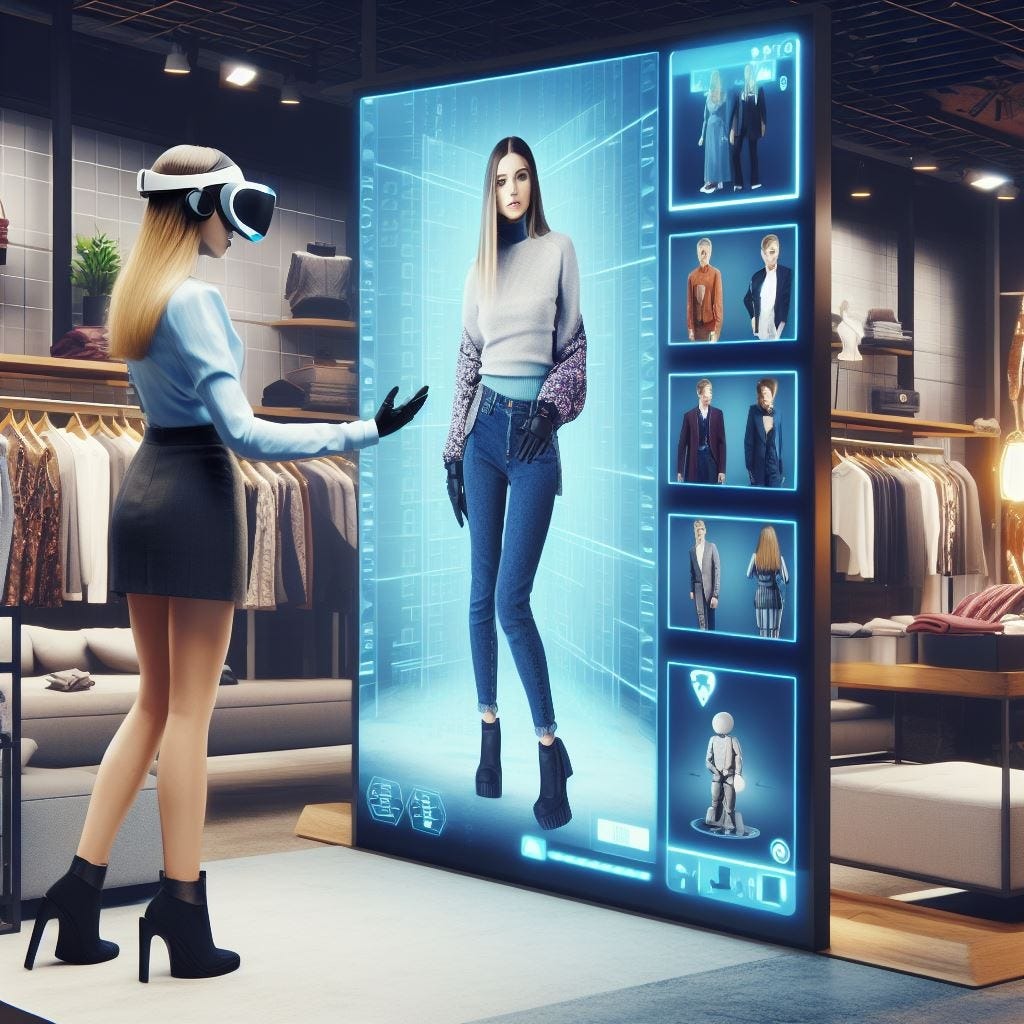In the ever-evolving landscape of e-commerce, personalization has emerged as a key driver of success. Today’s consumers expect tailored shopping experiences that cater to their unique preferences and needs. Thanks to Artificial Intelligence (AI), businesses can now harness the power of data to deliver highly personalized and engaging online shopping journeys. In this article, we will delve into the world of e-commerce personalization, exploring how AI is revolutionizing the way we shop online.
The Significance of E-Commerce Personalization
Personalization in e-commerce refers to the practice of customizing a user’s online shopping experience based on their individual behavior, preferences, and demographics. It encompasses a range of tactics, from recommending relevant products and content to providing personalized promotions and offers.
1. Improved Customer Engagement: Personalization fosters a deeper connection between customers and brands. When consumers feel that their needs are understood and catered to, they are more likely to engage with the platform.
2. Enhanced Customer Loyalty: By consistently delivering relevant and valuable experiences, e-commerce businesses can build lasting relationships with customers, leading to increased loyalty and repeat purchases.
Leveraging AI for Personalization
Artificial Intelligence plays a pivotal role in e-commerce personalization, as it can analyze vast amounts of data in real-time to make personalized recommendations and decisions.
1. Machine Learning Algorithms: Machine learning algorithms are used to analyze user behavior, historical data, and preferences to make product recommendations that are relevant to each individual shopper.
2. Natural Language Processing (NLP): NLP allows AI to understand and interpret user-generated content such as product reviews, enabling better product recommendations and sentiment analysis.
Product Recommendations and Content Personalization
Effective e-commerce personalization starts with product recommendations and content tailored to individual shoppers.
1. Product Recommendations: AI algorithms analyze a user’s browsing and purchase history to suggest products they are likely to be interested in. These recommendations can appear on product pages, in emails, or even as pop-ups during the shopping journey.
2. Dynamic Content: Websites can dynamically adjust content based on a user’s preferences. This includes displaying different images, product descriptions, and promotional banners to cater to specific customer segments.
Personalized Marketing Campaigns
AI-driven personalization extends to marketing campaigns, ensuring that each customer receives targeted and relevant content.
1. Email Marketing: Personalized email marketing campaigns can include product recommendations, exclusive offers, and content based on the recipient’s browsing and purchase history.
2. Retargeting Ads: AI can identify users who have abandoned their shopping carts and display targeted ads featuring the abandoned products, enticing them to complete their purchase.
Real-time Personalization
In today’s fast-paced online shopping environment, real-time personalization is crucial for capturing the attention and interest of customers.
1. Dynamic Pricing: AI can adjust prices in real-time based on factors like demand, competitor pricing, and customer behavior, ensuring competitive and attractive offers.
2. Chatbots and Customer Support: Chatbots powered by AI can provide instant responses to customer queries and offer product recommendations, enhancing the shopping experience.
Challenges and Considerations
While e-commerce personalization powered by AI offers significant advantages, businesses must be mindful of potential challenges.
1. Data Privacy: Collecting and utilizing customer data for personalization must be done in compliance with data privacy regulations to protect customer privacy.
2. Ethical Concerns: The use of AI in personalization should be transparent and ethically sound to avoid alienating customers.
The Future of E-Commerce Personalization
The future of e-commerce personalization holds exciting possibilities, with AI continuing to advance and refine its capabilities.
1. Predictive Personalization: AI will become more predictive, anticipating customer needs and preferences even before they are explicitly expressed.
2. Omnichannel Personalization: E-commerce personalization will extend seamlessly across all customer touchpoints, from websites and mobile apps to physical stores.
Conclusion
E-commerce personalization is no longer a luxury but a necessity in today’s competitive digital marketplace. AI-driven personalization empowers businesses to deliver tailored shopping experiences that engage customers, build loyalty, and drive sales. As technology continues to evolve, the potential for personalized e-commerce experiences is boundless, offering businesses the opportunity to thrive in an increasingly customer-centric e-commerce landscape. To remain competitive, e-commerce businesses should invest in AI-driven personalization strategies that cater to the unique preferences and needs of each customer.
